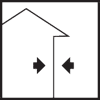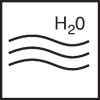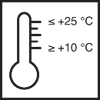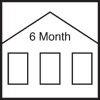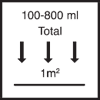Article No. 068505
Aqueous, semi-permanent impregnation agent on an alkylalkoxysilane/wax base for protection against graffiti
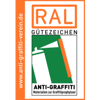
Product specifications
The stated values represent typical product characteristics and are not to be construed as binding product specifications.
Field of application
- Mineral building materials such as brick, natural stone, concrete, sand-lime brick
Properties
- Repels water
- Reduces adhesion
- Enables water vapour diffusion
- Facilitates the removal of graffiti using hot water jets
- Solvent-free
- UV-resistant
- Alkali-resistant
- Listed in BASt
-
Preparation
-
Substrate requirements
The substrate must be clean, dust-free and dry.
-
Preparations
Any construction defects such as cracks, cracked joints, defective connections, rising damp and hygroscopic moisture must be remedied in advance.
Perform any necessary cleaning gently, e.g. by spraying with cold or warm water or by steam-cleaning; use rotec soft whirl jet technology or Remmers cleaning products (e.g. Traffic Film Remover (0671), Clean FP (0666), Clean AC (0672), Combi WR (0675)) on tough stains.
-
-
Application
-
Application requirements
Temperature of the material, air and substrate: from min. +10 °C to max. +25 °C
-
Apply the primer abundantly by flow coating without pressure (avoid misting), so that a 30 - 50 cm long liquid film flows down the surface.
Apply on one section at a time, moving from top to bottom, and immediately go over with a large brush.
Repeat the application several (at least two) times (wet on damp) until no further material is absorbed by the substrate.On surfaces where spray application is not possible, apply using a well-saturated brush.
-
Application instructions
-
Take appropriate measures to protect adjacent building elements and materials that should not come into contact with the product.
Protect freshly treated surfaces from driving rain, wind, sunlight and condensation.
When working on water-repellent substrates, prior to the actual application, Graffiti Protection must first be applied by rubbing into the substrate. Special additives temporarily eliminate the hydrophobic effect.
Remove graffiti by cleaning off with pressurised hot water. The water temperature on the surface being cleaned must be at least 80 °C.
Remmers AGE is a suitable alternative/additional product for cleaning surfaces treated with Graffiti Protection.
After cleaning and drying, the surface can be impregnated again.
-
-
Working tools / cleaning
-
Corrosion-resistant low-pressure, conveying and spraying equipment, liquid pumps, brush, surface brush and sheepskin roller
-
Tools must be clean and dry.
Clean tools with water after use and before any lengthy interruptions to work.
-
Storage / shelf life
-
If stored unopened in its original container in a cool, dry place and protected against frost, the product will keep for at least 6 months.
Use the contents of open containers as quickly as possible.
-
Usage
-
Clinker: 0.1 - 0.2 l/m²
Natural stone: 0.3 - 0.8 l/m²
Brick: 0.2 - 0.5 l/m²
Concrete: 0.2 - 0.3 l/m² -
Apply to a large enough trial surface (1-2 m²) to determine the precise amount of impregnation agent required.
It is essential to test the influence on the appearance (e.g. due to colour intensification) and effectiveness (protective effect: how easily can graffiti be removed) of this product on this surface as well.
-
General information
-
Current regulations and legal requirements must be taken into account and deviations from these must be agreed separately.
The relevant test certificates must be observed when planning and carrying out work.
Water must not be allowed to penetrate behind the hydrophobized zone.
The level of absorption is crucial for the impregnation agent to work at its best. This depends on the respective pore volume and moisture content of the building material.
Carry out a quantitative analysis of aggressive salts if there are any salts present that could damage building materials.
High concentrations of harmful salts can cause major structural damage that impregnation cannot prevent.
-
-
Disposal instructions
-
Larger quantities of leftover product should be disposed of in the original containers in accordance with the applicable regulations. Completely empty, clean containers should be recycled. Do not dispose of together with household waste. Do not allow to enter the sewage system. Do not empty into drains.
-
-
Safety / regulations
-
For further information on the safety aspects of transporting, storing and handling the product and on disposal and environmental matters, please see the current Safety Data Sheet.
-

